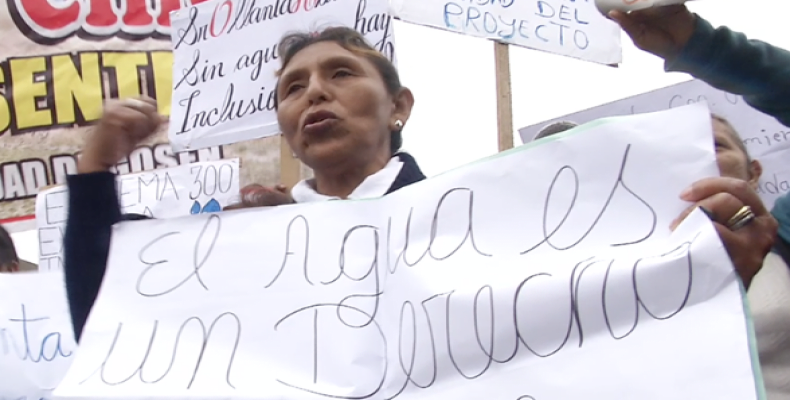Lima, October 27 (teleSUR-RHC)-- Protests demanding water and drainage services for the outskirts of Lima, the Peruvian capital, added to the series of ongoing social conflicts that have contributed to the political crisis Peruvian President Ollanta Humala is facing.
Humala is also facing a crisis in Congress, where he continues to lose members. Last week, Vice President Marisol Espinoza resigned from her post and became the 19th Congress member to quit the ruling Nationalist Party.
The political crisis is also deepened by another event that took place last week. Last Tuesday, the Minister of Justice Gustavo Adrianzen resigned from his post two days before he was to face a vote by Congress to sanction him. The vote to sanction was due to his removal of judge Julia Principe, who was investigating cases of corruption involving the wife of the president, Nadine Heredia.
Adrianzen became the sixth Minister of Justice to take the post in the less than five years of the president’s term. One of the remaining ruling party congressmen, Agustin Molina defended the government and implied his colleges who resigned were traitors who have ulterior motives.
"(The) truth is there are few of us left but we are the real nationalist, the ones who truly believe in the government, and defend our government,” he said. “Therefore, I believe that those congress members who have left have probably done so because their needs have not been satisfied."
Public opinion approval ratings for the president are at an all time low of only 12 percent, according to a Sunday poll by GFK.
Reynaldo Robles, who participated on Monday’s protests, does not support the president any more because “he made promises to the people but in the end he did not fulfill his promises. The main needs we have are water and drainage systems which are main elements for human life."
Political analyst Abraham Valencia said the feeling of betrayal expressed by Robles is common.
Valencia explained, "you have people who knew this program, this government plan, and they are going to tell you that Ollanta did not follow it. He did not follow through with almost anything that he promised, of the issues he raised during the election campaign not only in 2011 but also in 2006."
Presidential and general elections will take place next April but all the possible candidates of the ruling party have been polling at single digits. If elections were held today, the party of Ollanta Humala would no longer hold any significant political power.


